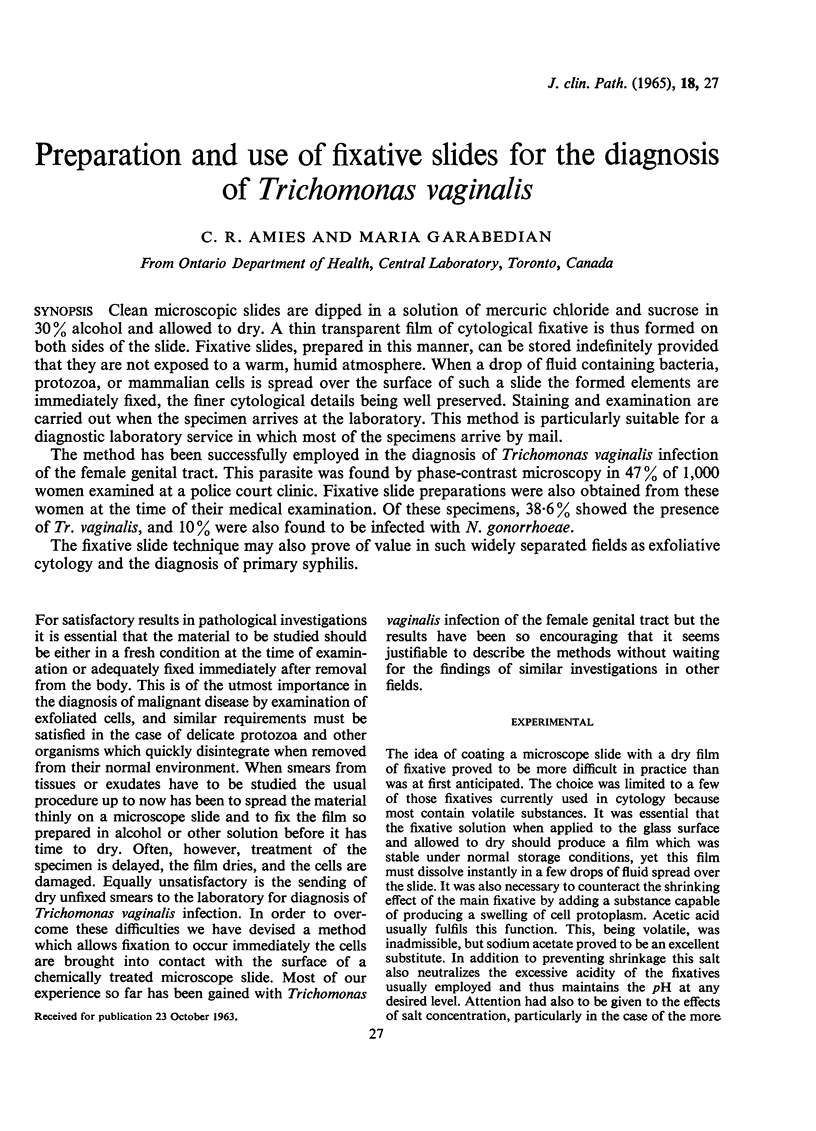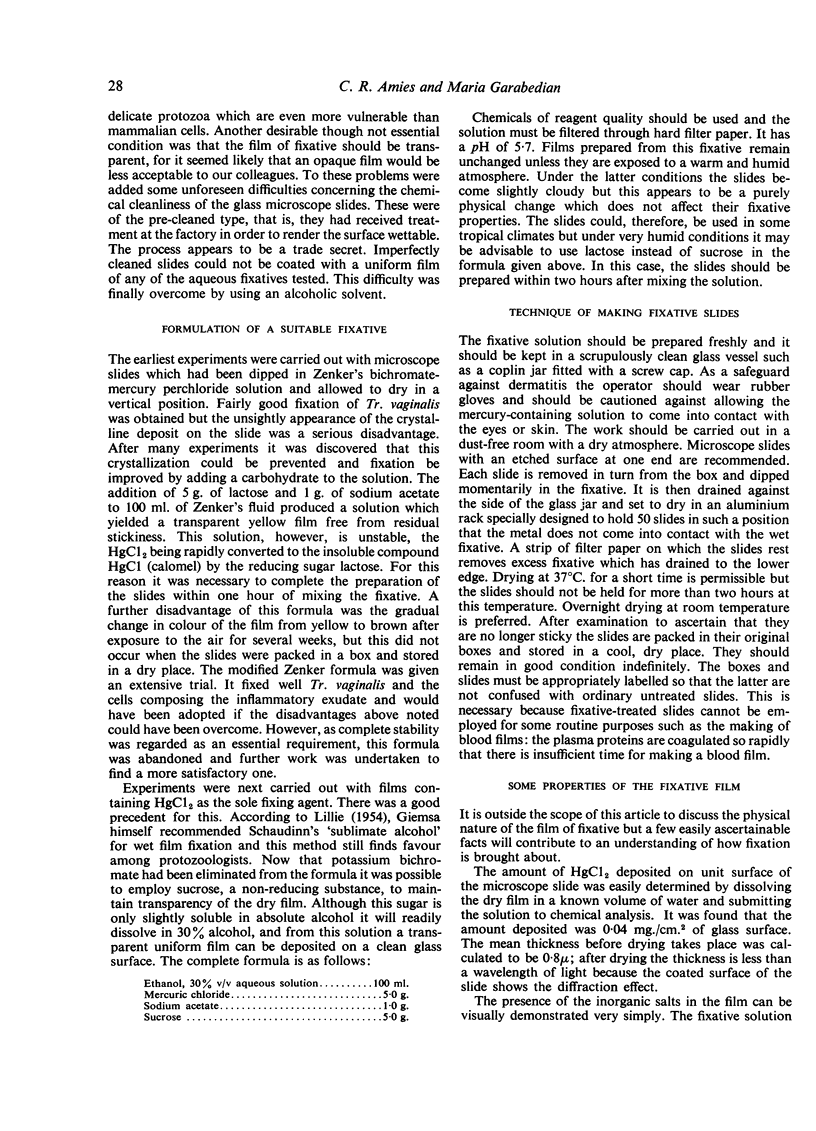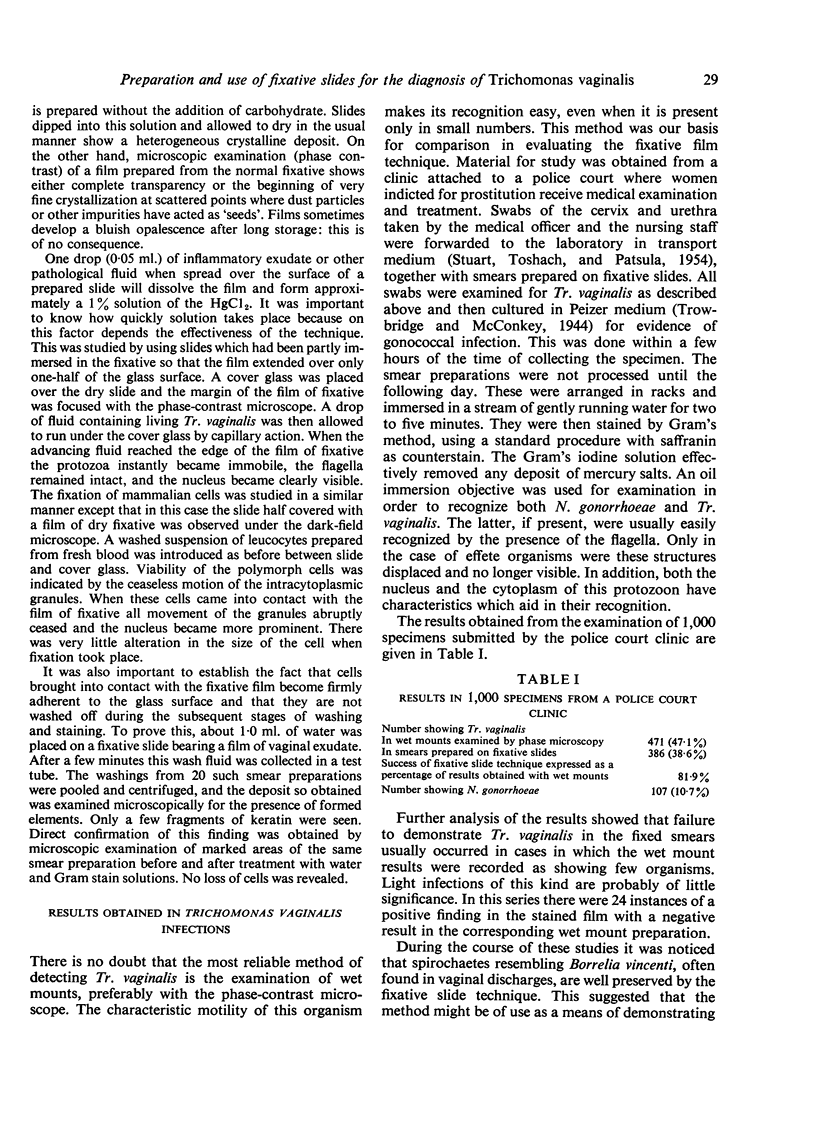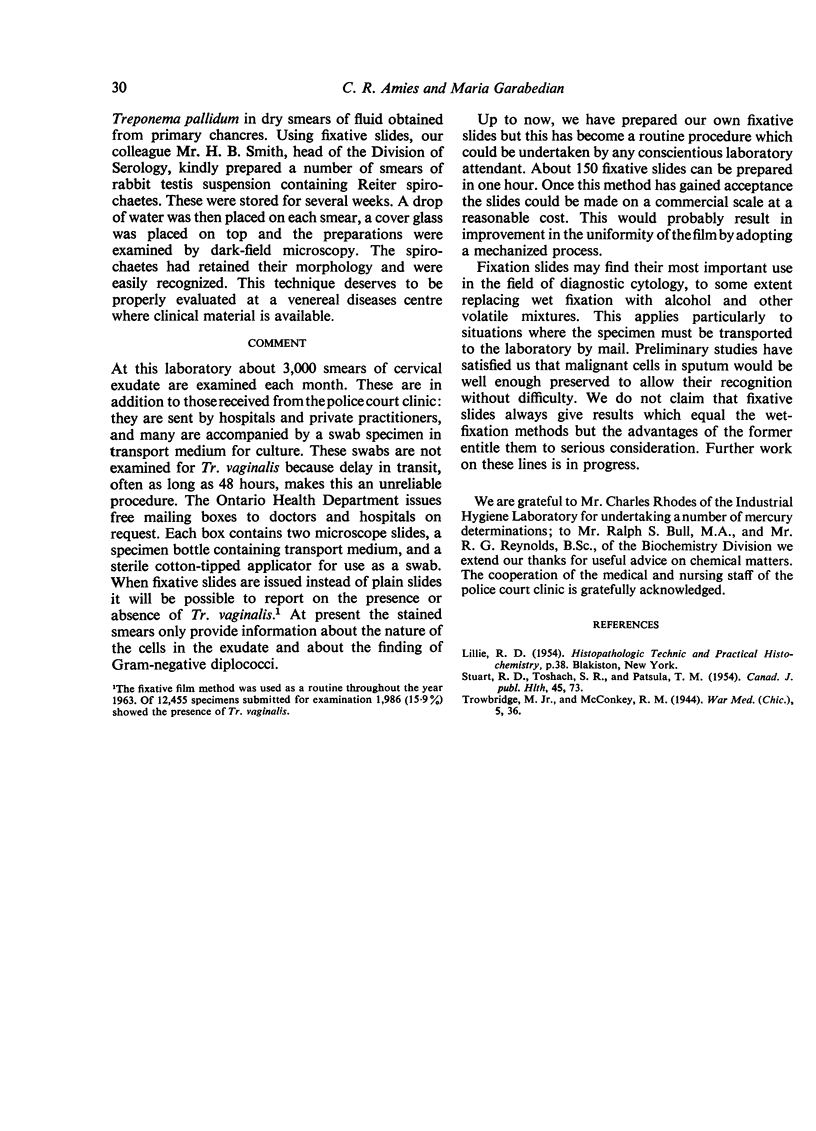Abstract
Clean microscopic slides are dipped in a solution of mercuric chloride and sucrose in 30% alcohol and allowed to dry. A thin transparent film of cytological fixative is thus formed on both sides of the slide. Fixative slides, prepared in this manner, can be stored indefinitely provided that they are not exposed to a warm, humid atmosphere. When a drop of fluid containing bacteria, protozoa, or mammalian cells is spread over the surface of such a slide the formed elements are immediately fixed, the finer cytological details being well preserved. Staining and examination are carried out when the specimen arrives at the laboratory. This method is particularly suitable for a diagnostic laboratory service in which most of the specimens arrive by mail.
The method has been successfully employed in the diagnosis of Trichomonas vaginalis infection of the female genital tract. This parasite was found by phase-contrast microscopy in 47% of 1,000 women examined at a police court clinic. Fixative slide preparations were also obtained from these women at the time of their medical examination. Of these specimens, 38·6% showed the presence of Tr. vaginalis, and 10% were also found to be infected with N. gonorrhoeae.
The fixative slide technique may also prove of value in such widely separated fields as exfoliative cytology and the diagnosis of primary syphilis.
Full text
PDF



Selected References
These references are in PubMed. This may not be the complete list of references from this article.
- STUART R. D., TOSHACH S. R., PATSULA T. M. The problem of transport of specimens for culture of Gonococci. Can J Public Health. 1954 Feb;45(2):73–83. [PubMed] [Google Scholar]



